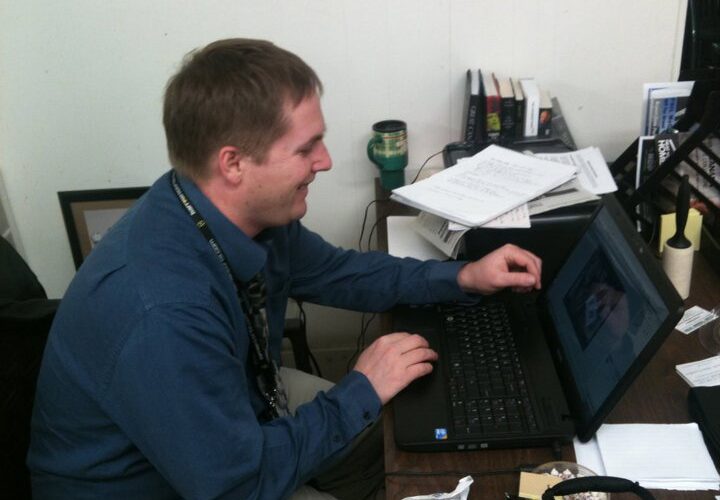Volunteering is Supposed to be Fun (Andrew Macklin, @AMacklin)
Volunteering: It’s an unselfish act that most of us do to show support for something we care about. We make time in our already busy schedules to freely provide our work, time, and expertise in order to help. And, in doing so, we have fun. We enjoy the help we provide.
That is what volunteering is supposed to be about. Regardless of the organization, regardless of the cause, regardless of the workload, volunteering is supposed to be fun.
But, for so many people I know, it’s not. They don’t enjoy the volunteer commitments they make, or at least, they have enough negative to discuss to make them feel the enjoyment has been sucked out of the experience. Sure, many of them have multiple volunteer efforts they enjoy as well, but the one causing them grief is always at the forefront of the conversation.
I can certainly relate. Most, if not all, of the volunteering commitments I have ever taken on have eventually left a bitter taste in my mouth. Sure, I did have a ton of fun at every single one of them, but in the end, the frustration ultimately soured the experience so much that I left unhappy; swallowing that bitter pill, giving up and walking away. And it never mattered what role I was playing, in an executive capacity or as a general helper, something always went wrong.
So what turns people off volunteering? Or for that matter, what is it about some organizations that makes people want to never stop helping and provide more and more of their time to assist?
It begins with leadership. In this community, real leadership carries a lot of weight. There are a ton of great people in the community who have provided the leadership that is necessary to successfully run an organization. But in many cases, leadership is also where it ends. All too often people get stuck in leadership positions, on boards and committees, because no one else is willing to step up. In other cases, some in leadership positions don’t step down when it’s time to give that spot up to someone else trying to rise through the ranks. But the great leaders, are the ones who rise to the occasion when asked, and work hard to ensure a succession plan is in place so they are not stuck at the top. They are open to new ideas and new philosophies because they understand that it isn’t about them, it’s about helping the cause. They welcome people from every sector, every belief, every age, every gender, and every skill set. Because people want to help, not be discriminated against. A good leader finds you a role, and works with you to enjoy that role.
After leadership comes politics or, more importantly, the lack of politics. Every organization that I have been a part of had politics. Don’t get me wrong, I’m guilty of providing a chunk of that in each one of my previous volunteer commitments; I’m not proud of it, and I never will be. But if people are going to enjoy volunteering, and volunteer leaders are going to enjoy leading, then the politics must be removed. Sure, some organizations are prone to the development of political agendas just because of their nature, but an effective volunteer leader takes action to eliminate those political actions in order to help ensure the future prosperity of the organization. Politics, in a volunteer setting, are divisive. Varying opinions are always welcome, as they should be, but politics and political agendas have no place.
Which brings me to my next point: LISTEN. No matter what position you find yourself in while you are volunteering, you must listen. Leaders, you have to listen to the ideas around the table, no matter how ludicrous you may believe it to be. You don’t know everything, you can’t know everything, and you’re not good at everything. Fresh ideas breathe new air into any organization. Listen to what is said, have a discussion and figure out how viable the idea is. Perhaps that new approach is just what your organization desperately needs to move forward.
If you’re a member at large, or a volunteer there to provide help and support, you need to listen to your leaders. Chances are they’ve seen your role done before, and can provide insight into what you should and shouldn’t do. You won’t necessarily like everything they have to say and you may have other ideas, but the more you listen to what they have to say, the more likely it is they will also listen to you in kind.
It’s sad to think that people have negative volunteer experiences because, in the end, we are all just trying to help. The most important thing about volunteering to remember is that it is just that, a volunteer commitment. If the role doesn’t suit, the leadership style doesn’t work, your ideas aren’t getting heard, or you just don’t like what’s happening, then WALK AWAY. No one can force you to stay, and you should never feel guilty about leaving. Don’t use your precious spare time to do something you don’t enjoy. There is always another opportunity waiting for you.
Lastly, I want to end this editorial with an apology. Writing this has made me realize just how crappy I have been to some of the people that I’ve volunteered with, or for, in the past. Many of you were there for the right reasons, and didn’t deserve to be wronged by someone who was supposed to have your best intentions at heart. It bothers me to no end to know that there are people I have driven away because I failed to be an effective leader or an effective volunteer. To those of you out there – you know who you are – I am truly sorry.
Hopefully people can learn from my mistakes.
